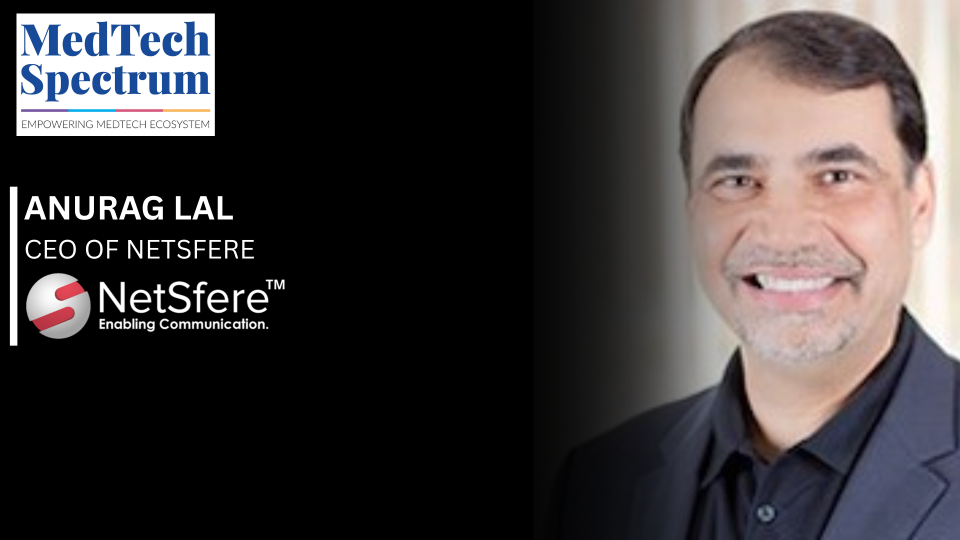
As healthcare systems around the world rapidly transform digitally, secure communication has become essential for enhancing efficiency, ensuring compliance, and building patient trust. In Malaysia, KPJ Healthcare Berhad, the largest private healthcare provider in the country, has partnered with NetSfere to implement an encrypted messaging and collaboration platform across its 30 hospitals. This initiative highlights the increasing importance of data sovereignty, regulatory compliance, and real-time collaboration in modern healthcare delivery. In a discussion with Medtech Spectrum, Anurag Lal, CEO and President of NetSfere, explains why KPJ chose this platform, how it protects sensitive data in accordance with Malaysia's Personal Data Protection Act (PDPA) and international standards, and the crucial role of secure communication in shaping the future of digital healthcare in Southeast Asia and beyond.
KPJ Healthcare has chosen NetSfere as its secure communication partner across 30 hospitals. What were the key factors that made KPJ select NetSfere over other enterprise messaging solutions?
We’re thrilled KPJ Healthcare selected NetSfere for its secure and compliant communication platform. NetSfere's robust security features, including end-to-end encryption, its ability to support compliance with critical regulations like Malaysia’s PDPA and international standards such as JCI and MSQH, and its capacity to facilitate seamless collaboration among healthcare professionals, were what made the difference for KPJ. The platform's centralised governance, auditability and secure real-time communications were essential for KPJ’s priority in protecting sensitive healthcare data.
Data privacy and compliance are critical in healthcare. How does NetSfere ensure adherence to Malaysia’s PDPA as well as international standards such as MSQH and JCI?
The platform is hosted locally on AWS in Malaysia, ensuring data sovereignty. It provides end-to-end encryption, full IT control and guarantees that all communications remain secure. Additionally, NetSfere does not collect, store, or use user data, ensuring that sensitive information stays within the organisation and remains fully controlled by the enterprise. These features are essential for healthcare organisations that need to meet stringent data protection standards.
The platform integrates features like end-to-end encryption, secure file sharing, and AI assistant Net-C. Could you elaborate on how these capabilities enhance both clinical efficiency and patient outcomes?
Our encrypted communication and secure file sharing allow healthcare professionals to exchange critical information such as test results and medical records instantly and safely. This enhances communication while maintaining patient privacy. Net-C is our AI-powered assistant tool built to streamline clinical workflows by providing real-time access to patient data, answering queries and automating routine tasks. By reducing the time spent on administrative work, healthcare teams can focus more on patient care.
Healthcare communication often involves crisis scenarios. How does NetSfere’s real-time alerting and centralised governance help hospitals respond more effectively in urgent situations?
In a crisis, every second counts, and effective communication is essential. NetSfere delivers instant notifications to healthcare teams, ensuring they are quickly informed of critical events, such as emergencies, patient status changes, or operational disruptions. These alerts allow the staff to respond immediately, coordinating actions swiftly across departments. The communication platform gives administrators full control over communication policies and data access, to make sure all security protocols are always followed, especially in high-stress scenarios. Together, these features help healthcare organizations manage crises effectively by enabling rapid, secure communication and maintaining full oversight of critical situations.
With KPJ Healthcare hosting NetSfere on AWS in Malaysia, data sovereignty is a clear priority. How do you see the importance of local hosting evolving in healthcare communications globally?
Many countries, including Malaysia, have strict data protection laws that require sensitive information, such as healthcare data, to be stored and processed within the country's borders. By hosting on AWS in Malaysia, NetSfere ensures compliance with Malaysia’s PDPA and other regional regulations, which require that data remain within national borders to protect citizens' privacy. Local hosting allows healthcare organisations to retain full control over their data, reducing the risk of external jurisdictional issues. It ensures that data is protected by local security standards and protocols, which can be tailored to the specific needs of the healthcare sector. This control over data storage and processing also minimises the risk of data breaches that could arise from international data transfers. By hosting in-country, healthcare organisations can reassure patients and stakeholders that their data is being handled in compliance with national privacy laws. It fosters trust, which is vital in sectors like healthcare, where the security and confidentiality of patient data are paramount.
Looking ahead, how do you plan to expand NetSfere’s footprint in Southeast Asia and beyond? Do you see opportunities for broader integration with telehealth, diagnostics, or other digital health platforms?
We certainly see significant opportunities to integrate our platform with more telehealth and digital health platforms. There is a growing demand for secure and compliant communication solutions across Southeast Asia and globally, especially as digital transformation accelerates in industries like healthcare, finance and government. Our global expansion strategy is focused on forming partnerships with local providers, like KPJ, and adhering to regional compliance standards, which will be key to gaining trust and accelerating adoption in new markets.